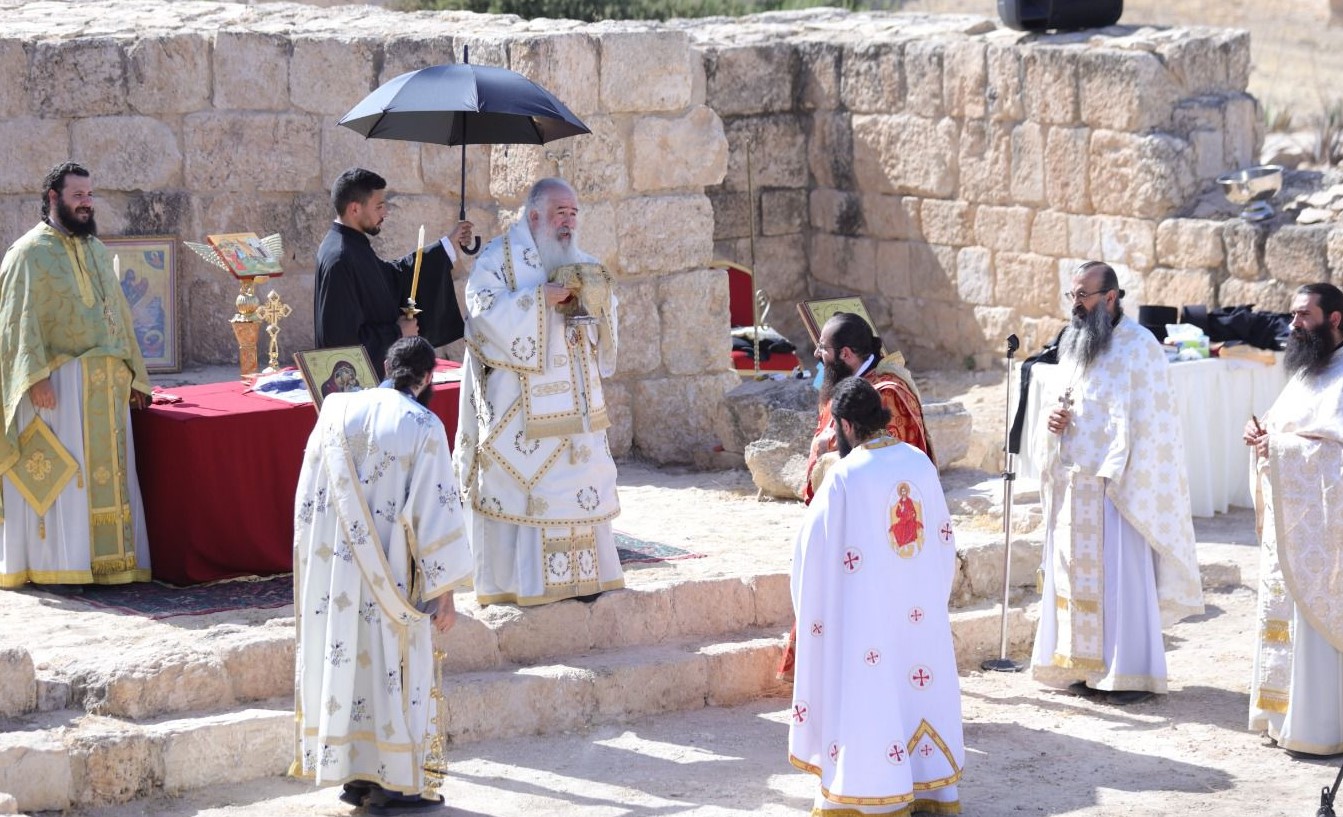

For the first time since the year 1400, the Greek Orthodox
Archbishopric celebrated a Divine Liturgy in the ancient Church of St.
Malachius in Makkawar Madaba in mid-June.
The Church of Malachius is located within the heritage group
in the village of Makawir. The church was discovered in 1990 by the Department
of Public Antiquities.
The church was built
on a basilica foundation and consists of a circle, two wings, and a
semi-vertical apse in two separate pieces, which affects the mass of limestone
muscles in the construction of this church.
Archaeological excavations found at the site destroyed
mosaic stone floors as a result of the encroachment on the church by building
on its parts, and parts of the floor of the survival rooms inside the rooms of
the southern rooms in the interior rosettes, which are formed from a southern
piece of stone.
The spoons of food at the hands of men and the massacre
inside the faucet influenced the management of the mosaic horizon, and an
inscription was found in the northern factory for the use of mercy and help (by
Sergius) (and Gargius). As for the writing of the dedication, the name of
Bishop Malachius was read from it, and from here came the name of the church.
The church dates back to the first half of the seventh
century, Petriano mentioning the name of Bishop Malachius, who is believed to
have been a bishop in the Diocese of Madaba for the first time.
Among the finds found during the large bronze excavation in
the middle room of the church and a base on which the altar was centered.
In addition, His Eminence Bishop Christoforos, the Greek
Orthodox Bishop of Jordan, presided over the Divine Liturgy service in the
influential Greek Church of Saint Malachius in Makkawar - Madaba for the first
time after 1,400 years of the Roman-Byzantine era, in cooperation with the
Ministry of Tourism and Antiquities.
What is noteworthy is that a number of priests participated
in the service curriculum, in addition to the nuns of the Monastery of Makrino
- Saint John the Baptist in Greece, and a number of public and diplomatic
figures dominated by the faithful.
After the Mass, the Sovereign of the Roman Byzantine Empire
in the Makkawar region reviews how Christianity succeeded in the first
centuries, as the Holy Church adopted in the Lord a bishop with an
ecclesiastical title: Archbishop of the Jordan River, Archbishop of the Jordan
River, Archbishop of the Jordan River, and head of all the monasteries in the
region. The Diocese of Al-Qarn even included the Jordan River, as well. To the
spacious life that was widespread in and around Makkawar, devoted to hard work
to transform the noise of the cities into the peace and tranquility of the
desert through asceticism.
Because it contains the Ministry of Tourism and the Greek
Orthodox Archbishopric, the archaeological site of Rumi Makhawar, where the
head of the Baptist was beheaded, as well as the restoration of spiritual life
in the areas of influence, confirming that Rumi Makhawar was able to obtain
blessings from it and for tourists to stay in the city of Madaba.
The information also indicates that the wealthy Orthodox
Church, with the exception of rebuilding the ancient Roman (Byzantine) church -
named after Saint Malachius and located next to Mount Makawir, where Saint John
the Baptist was imprisoned and completely beheaded by King Antipas of Rhodes -
was built in the sixth century and contains floors in its middle. The most
distinctive mosaics and Greek inscriptions found there are Jebel Makawir.